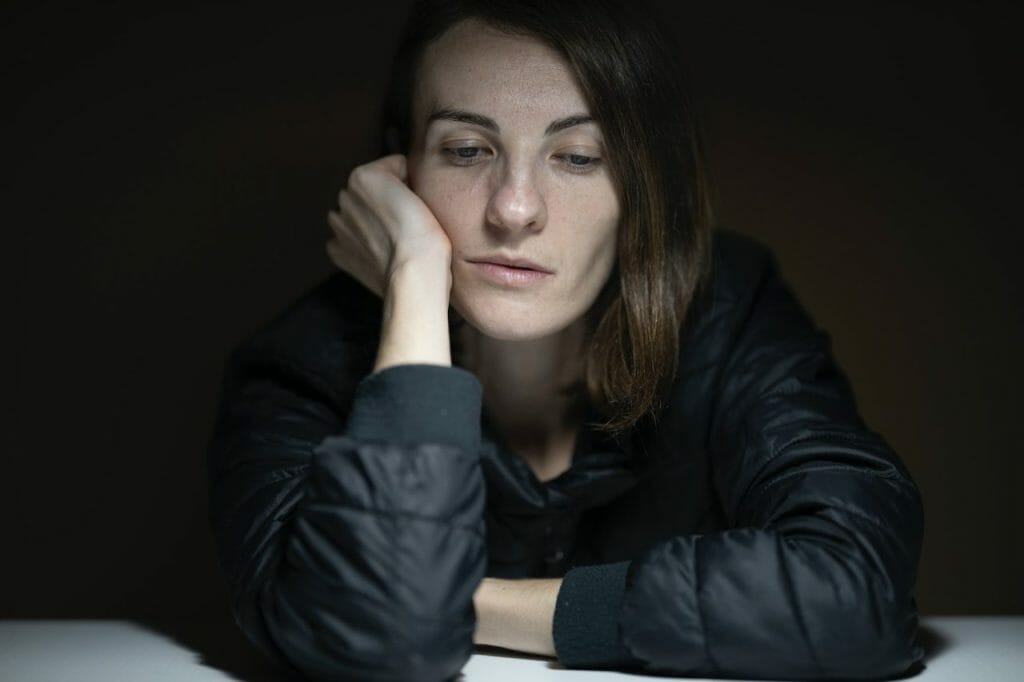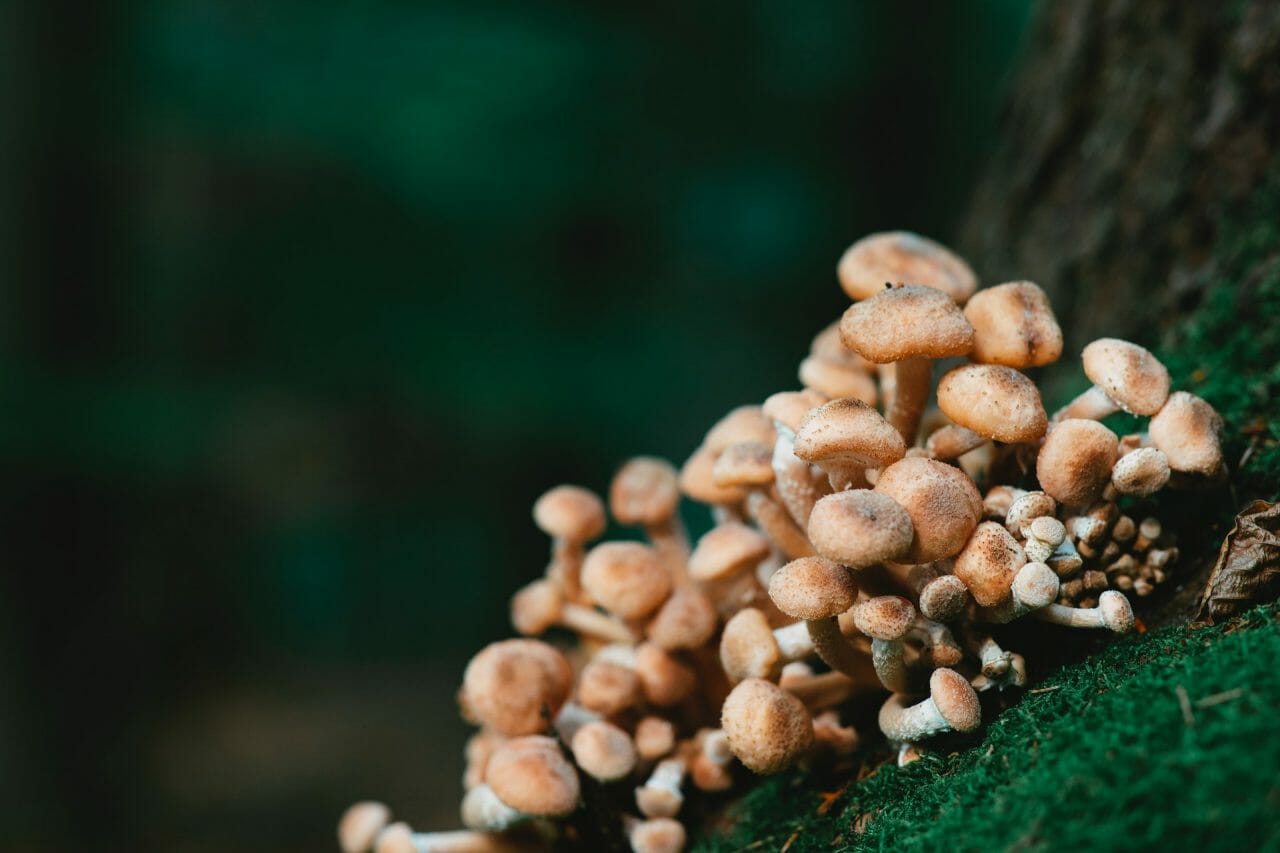According to the World Health Organization (WHO), over 264 million people worldwide suffer from depression.
Although conventional treatments can work, they often fall short in addressing the complexity of depression. This issue has led to a growing interest in alternative therapies. One such therapy gaining both public and scientific attention involves the use of psilocybin-rich mushrooms, available from a mushroom dispensary, for treating depression.
Let’s delve into the world of mushroom dispensaries and their role in treating depression, as well as the fascinating data emphasizing their potential to revolutionize our approach to this pressing global mental health concern.
Key Findings:
- Mushroom dispensaries offer an alternative approach to depression treatment with psilocybin-rich mushrooms.
- Research suggests that psilocybin can lead to substantial and enduring alleviation of depression symptoms.
- Psilocybin therapy is part of a new trend reshaping mental health care.

Understanding Psilocybin and its Therapeutic Potential
Psilocybin is a natural compound found in certain mushroom species, often referred to as “magic mushrooms.” When consumed, the body converts psilocybin into psilocin, which interacts with the serotonin receptors in the brain. This interaction leads to significant changes in perception, mood, and consciousness, which are typically associated with psilocybin intake.
Research into psilocybin as a possible treatment for depression has yielded significant findings. Clinical trials and studies have shown that a single, well-administered dose of psilocybin can result in significant reductions in depression symptoms. Patients have reported long-lasting and transformative impacts on their mental health and overall quality of life.
These findings have stimulated an increase in interest and investment in the study of psilocybin as an innovative treatment option for depression, especially for those who have not benefitted from conventional therapies.
Encouraging Results for Depression Treatment with Magic Mushroom Dispensaries
Magic mushrooms, often referred to as psilocybin-containing mushrooms, have gained attention for their potential to alleviate depressive symptoms. In this article, we’ll explore various types of magic mushrooms and discuss their potential benefits in treating depression.
| Magic Mushroom Type | Description | Potential Depression Benefits |
| Golden Teacher | A commonly known psilocybin mushroom with a golden cap. | It may reduce depressive symptoms and enhance emotional wellness. This species can foster introspection and self-reflection, potentially helping individuals gain new insights into their depression. Some users report feelings of unity and interconnectedness, which can counteract the loneliness frequently associated with depression. |
| Psilocybe Cubensis | One of the most widespread magic mushroom species. | It is thought to foster positive mood shifts and altered life perspectives. It could enhance emotional processing and support individuals in addressing their depression’s underlying issues. The altered state of consciousness it provokes may help users break away from fixed thought patterns and cultivate a more optimistic outlook. |
| B+ | Recognized by its large, bulbous fruiting bodies. | It might lead to significant and enduring reductions in depressive symptoms. Users often describe gaining clarity and understanding about their emotions and life circumstances. The therapeutic journey may assist in releasing suppressed emotions and trauma, thereby offering relief from depression. |
| Liberty Cap | Small, conical mushrooms found in various regions. | They are known to provoke intense emotional experiences that can positively impact depression. During Liberty Cap trips, users often report heightened sensitivity and empathy, promoting emotional healing and connection. The immersive and profound nature of the psychedelic journey could help individuals understand the root causes of their depression. |
| Penis Envy | Characterized by its unique, phallic-like shape. | It’s associated with deep insights and changes in depressive thought patterns. Users often experience ego dissolution, allowing them to confront their depression without their usual identity restrictions. The intensity of the experience may lead to therapeutic breakthroughs, resulting in lasting improvements in mental health. |
| Blue Meanie | A powerful strain distinguished by its bluish hue. | The Blue Meanie strain is believed to induce a soothing and tranquil effect on the mind, which may help in alleviating symptoms of anxiety and depression. Many users have reported experiencing a sense of inner peace and emotional release during their engagement with Blue Meanie, which could potentially contribute to improved mental health. With its mellow yet insightful features, this strain could be particularly suitable for those seeking a less overwhelming psychedelic experience with therapeutic benefits. |
Role of Magic Mushroom Dispensaries in Treating Depression
Magic mushroom dispensaries play an essential part in treating depression by offering a controlled and regulated environment for those seeking potential therapeutic solutions.
The Function of Health Canada
In Canada, Health Canada is the federal entity responsible for ensuring the safety, effectiveness, and quality of therapeutic substances, including psilocybin found in magic mushrooms.
Approval of Therapeutic Substances
Health Canada has recently granted exemptions and permissions for the usage of psilocybin in certain clinical and research situations for specific health conditions, including depression. This shift in policy indicates growing recognition of the potential therapeutic uses of psilocybin.
Potential Therapeutic Uses
Magic mushroom dispensaries present a potentially innovative and effective therapeutic option for those battling depression. With the proper permissions and under certain circumstances, individuals can leverage psilocybin therapy to alleviate depression symptoms.
A Supervised and Regulated Setting
Magic mushroom dispensaries provide a supervised and regulated environment for those pursuing psilocybin therapy, ensuring the experience is conducted safely under the guidance of skilled professionals.
Compliance with Health Canada Regulations
Dispensaries must adhere to Health Canada’s rules and guidelines when providing psilocybin-based products for therapeutic use. They play a critical role in ensuring adherence and responsible, ethical conduct of therapy.
Guidance on Psilocybin Therapy Through a Mushroom Store
Undergoing psilocybin therapy through a mushroom store could potentially be a transformative and beneficial experience. However, it’s essential to navigate this process with mindfulness and prudence. Here are some tips to help guide you:
- Conduct Meticulous Research: Begin by performing an in-depth investigation on psilocybin therapy and the particular mushroom store you’re considering.
- Seek Professional Advice: Before embarking on psilocybin therapy, consult with a mental health specialist or a therapist experienced in psychedelic-assisted treatment. They can assess your suitability for such therapy and provide invaluable counsel.
- Choose a Trustworthy Store: Look for reviews, recommendations, and evidence of compliance with local regulations.
- Understand the Procedure: Familiarize yourself with the entire treatment process, from the preparatory stage to the psychedelic journey and the post-experience integration. Knowing what to expect can reduce anxiety and enhance treatment outcomes.
- Prepare Yourself Mentally and Emotionally: Prepare yourself mentally and emotionally for the experience. Set clear goals for your therapy session, and be ready to confront any challenging emotions or thoughts that may arise.
- Ensure a Safe Environment: Verify that the mushroom store provides a secure and comfortable setting for your therapy session. This includes appropriate lighting, music, and the presence of trained staff to assist if needed.
- Follow Dosage Guidelines: Adhere to the dosage recommendations provided by the mushroom store or your healthcare provider. Avoid self-dosing or using unfamiliar substances, as it can be hazardous.
Conclusion
Mushroom shops providing psilocybin therapy have emerged as a potential solution for treating depression. Despite the diverse legal and regulatory landscape regarding these stores, an increasing volume of research and anecdotal evidence highlights their potential to alleviate depressive symptoms and offer individuals new perspectives on their mental health.
As the field of psychedelic-assisted therapy continues to grow, the role of mushroom shops in revolutionizing depression treatment provides hope for those seeking novel mental health treatments.
Frequently Asked Questions
How can I find a reputable mushroom store for depression treatment?
To find a reliable mushroom store, thorough research is essential. Look for stores that comply with local regulations and safety standards. Seek guidance from
For reliable sources, it’s recommended to consult healthcare professionals or individuals who have had positive experiences with psilocybin therapy. Assess the credibility of the dispensary, including the credentials of their facilitators and their commitment to ethical standards.
How long does the therapeutic effect of psilocybin therapy last in treating depression?
The therapeutic impact of psilocybin therapy varies from one individual to another. Some may experience immediate relief, while others notice gradual improvements. Research suggests that the benefits can last from several weeks to months after a single session. However, the duration of these effects can also be influenced by the integration process and ongoing support.
Is psilocybin therapy sufficient as a standalone treatment for depression, or does it need to be supplemented with other therapies?
Psilocybin therapy is usually incorporated into a comprehensive plan for depression treatment. It can be combined with conventional therapies such as psychotherapy, counselling, or medication to enhance its efficacy. The choice of treatment approaches should be customized to the individual’s needs and should be advised by healthcare professionals.
What other magic mushroom products can be used for treating depression?
Apart from traditional magic mushrooms, various other magic mushroom products are available for depression treatment. These include psilocybin microdosing capsules, psilocybin-infused edibles like chocolates or gummies, liquid extracts or tinctures, and psilocybin nasal sprays. These alternative methods of psilocybin delivery provide a variety of dosing options and application methods, including precise microdosing for subtle mood enhancement.
Suggested Reading:





